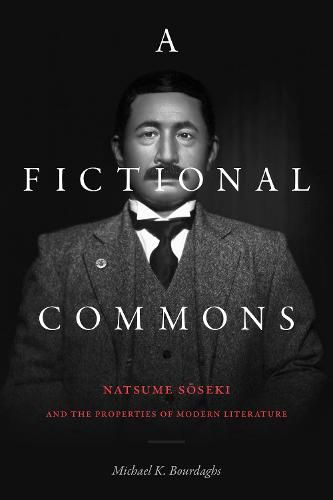Readings Newsletter
Become a Readings Member to make your shopping experience even easier.
Sign in or sign up for free!
You’re not far away from qualifying for FREE standard shipping within Australia
You’ve qualified for FREE standard shipping within Australia
The cart is loading…






Modernity arrived in Japan, as elsewhere, through new forms of ownership. In A Fictional Commons, Michael K. Bourdaghs explores how the literary and theoretical works of Natsume Soseki (1867-1916), widely celebrated as Japan’s greatest modern novelist, exploited the contradictions and ambiguities that haunted this new system. Many of his works feature narratives about inheritance, thievery, and the struggle to obtain or preserve material wealth while also imagining alternative ways of owning and sharing. For Soseki, literature was a means for thinking through-and beyond-private property. Bourdaghs puts Soseki into dialogue with thinkers from his own era (including William James and Mizuno Rentaro, author of Japan’s first copyright law) and discusses how his work anticipates such theorists as Karatani Kojin and Franco Moretti. As Bourdaghs shows, Soseki both appropriated and rejected concepts of ownership and subjectivity in ways that theorized literature as a critical response to the emergence of global capitalism.
$9.00 standard shipping within Australia
FREE standard shipping within Australia for orders over $100.00
Express & International shipping calculated at checkout
Modernity arrived in Japan, as elsewhere, through new forms of ownership. In A Fictional Commons, Michael K. Bourdaghs explores how the literary and theoretical works of Natsume Soseki (1867-1916), widely celebrated as Japan’s greatest modern novelist, exploited the contradictions and ambiguities that haunted this new system. Many of his works feature narratives about inheritance, thievery, and the struggle to obtain or preserve material wealth while also imagining alternative ways of owning and sharing. For Soseki, literature was a means for thinking through-and beyond-private property. Bourdaghs puts Soseki into dialogue with thinkers from his own era (including William James and Mizuno Rentaro, author of Japan’s first copyright law) and discusses how his work anticipates such theorists as Karatani Kojin and Franco Moretti. As Bourdaghs shows, Soseki both appropriated and rejected concepts of ownership and subjectivity in ways that theorized literature as a critical response to the emergence of global capitalism.